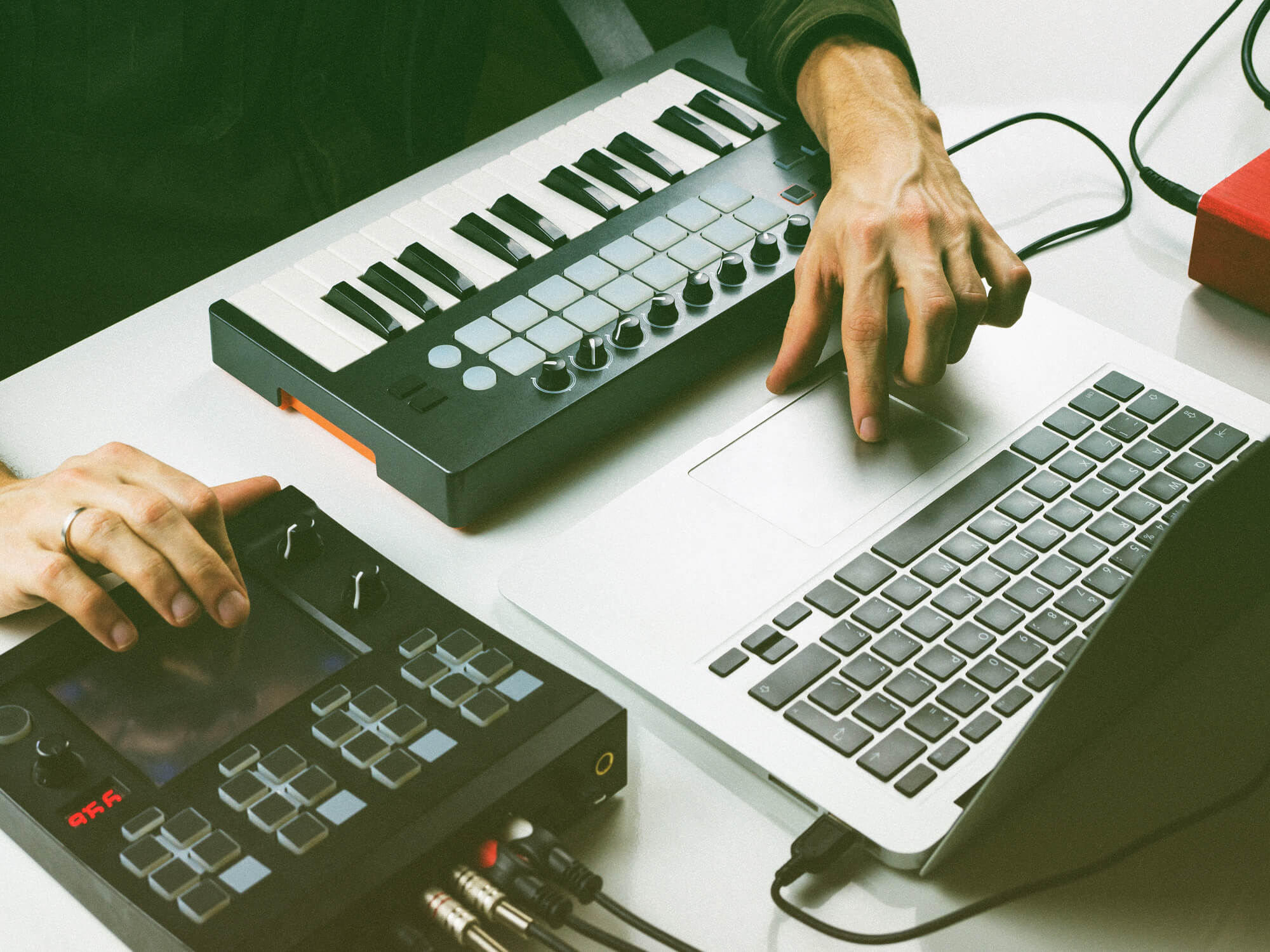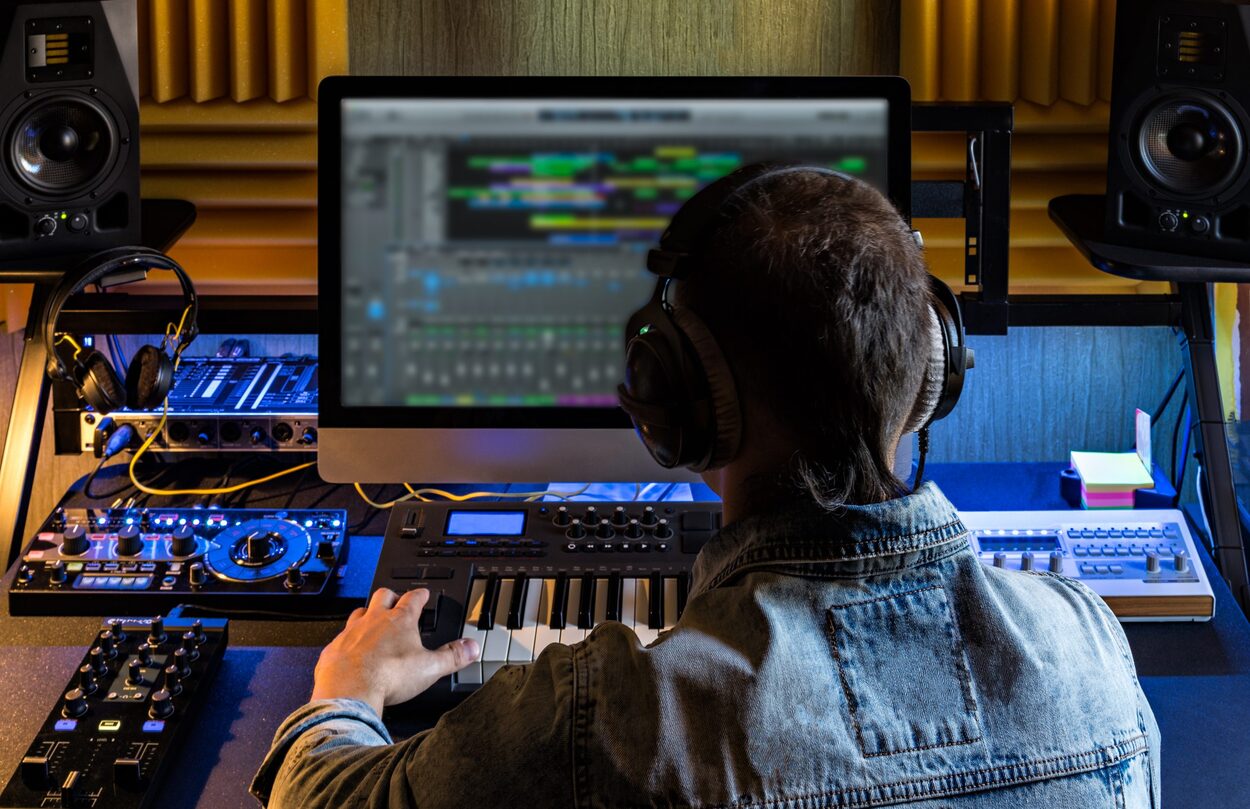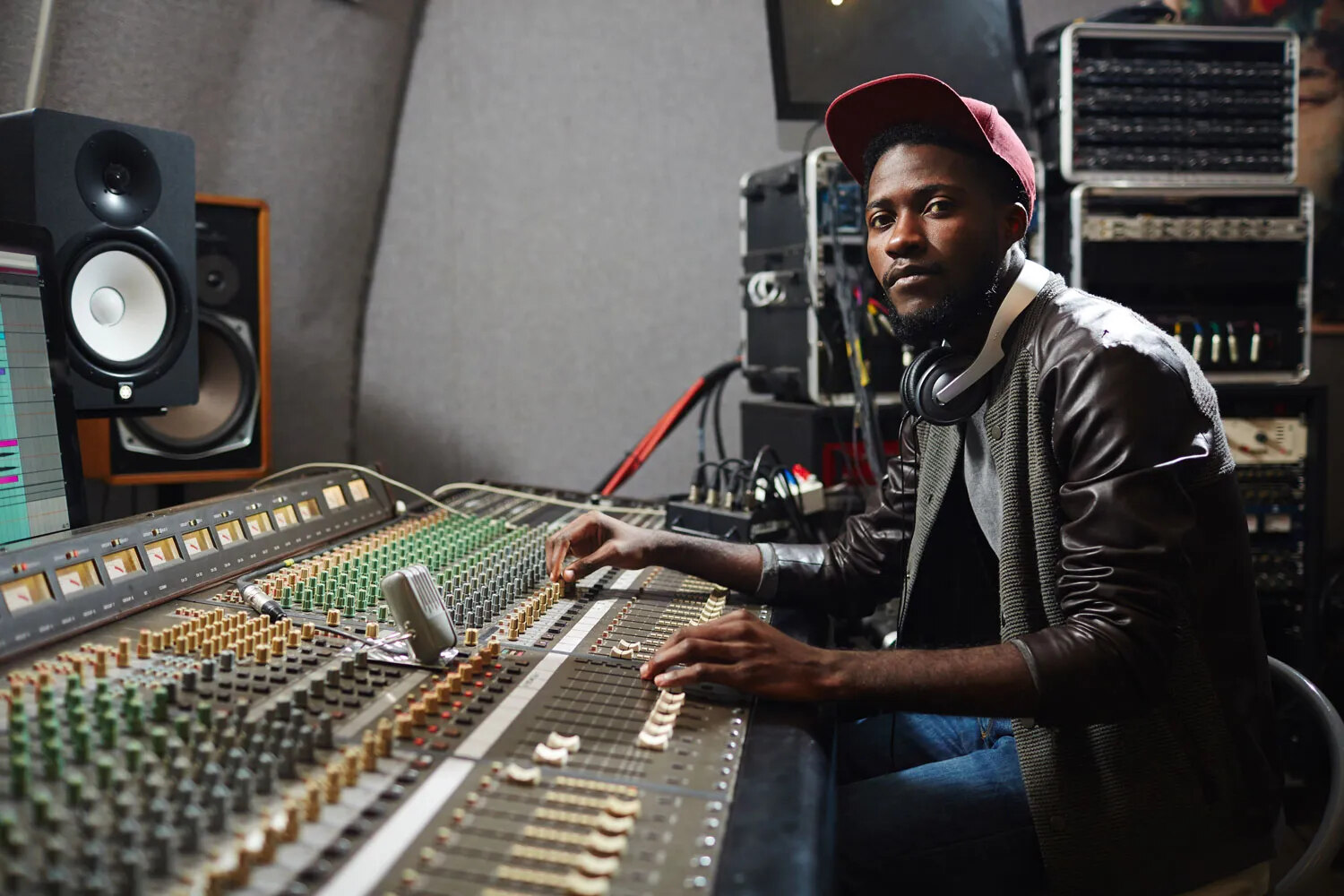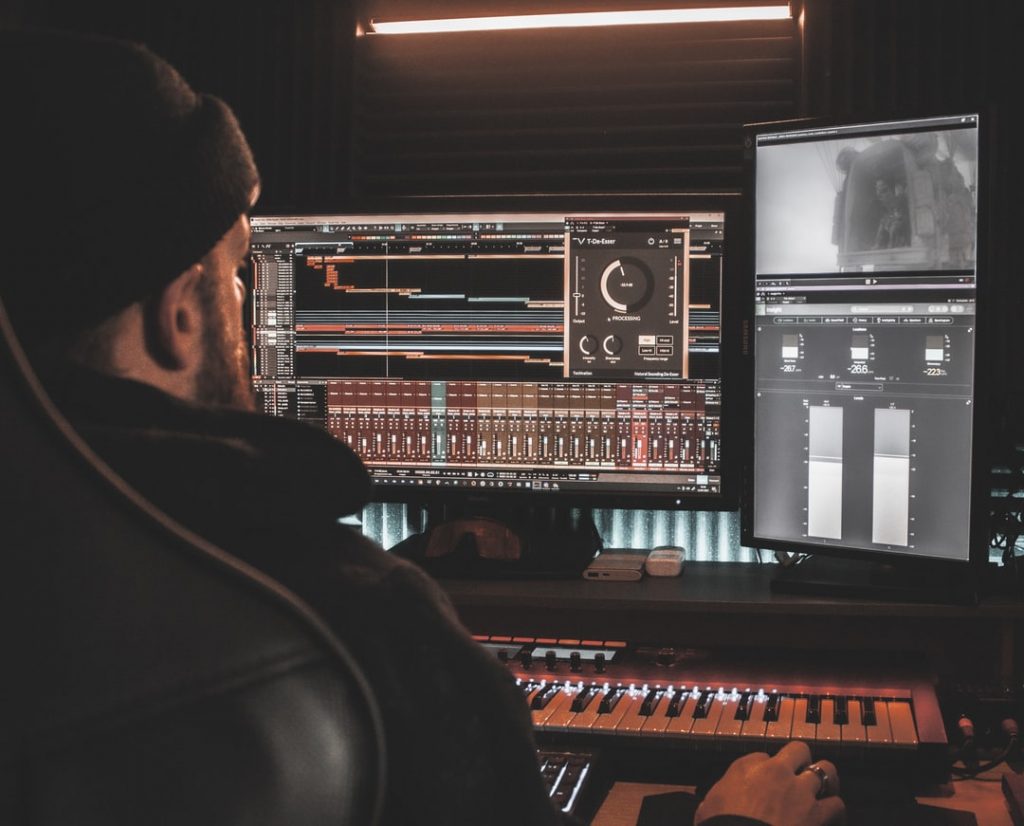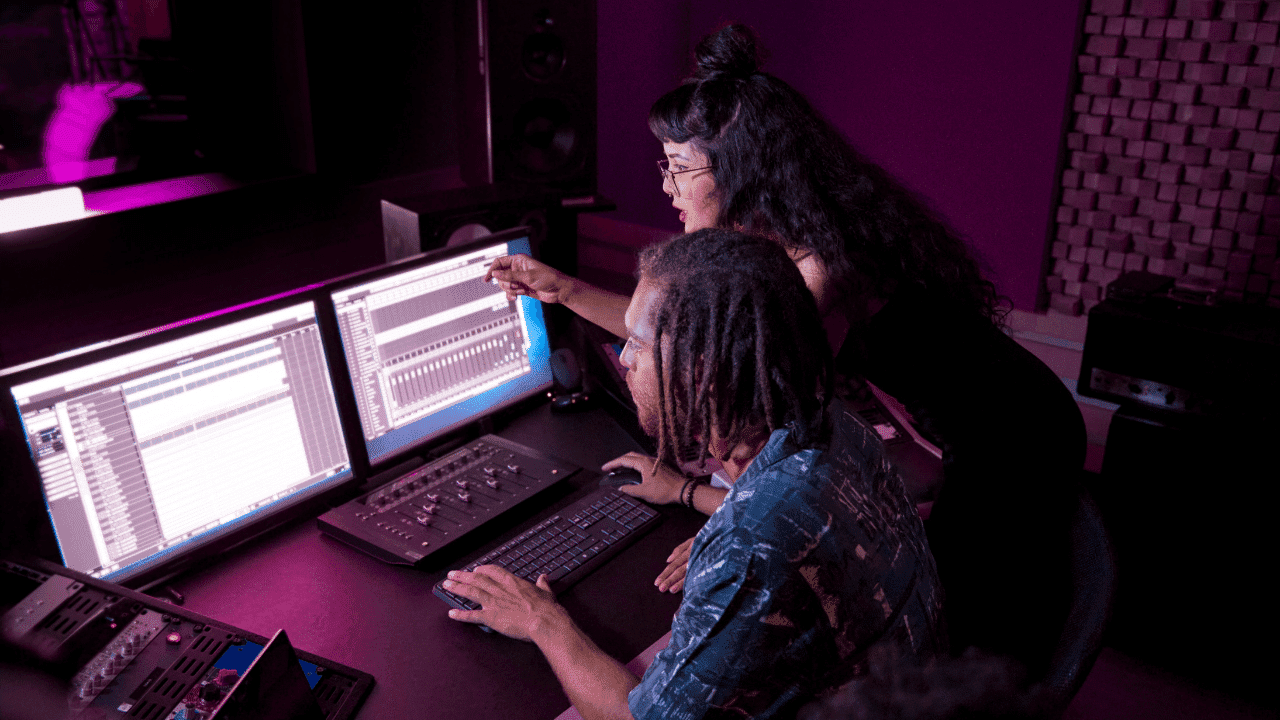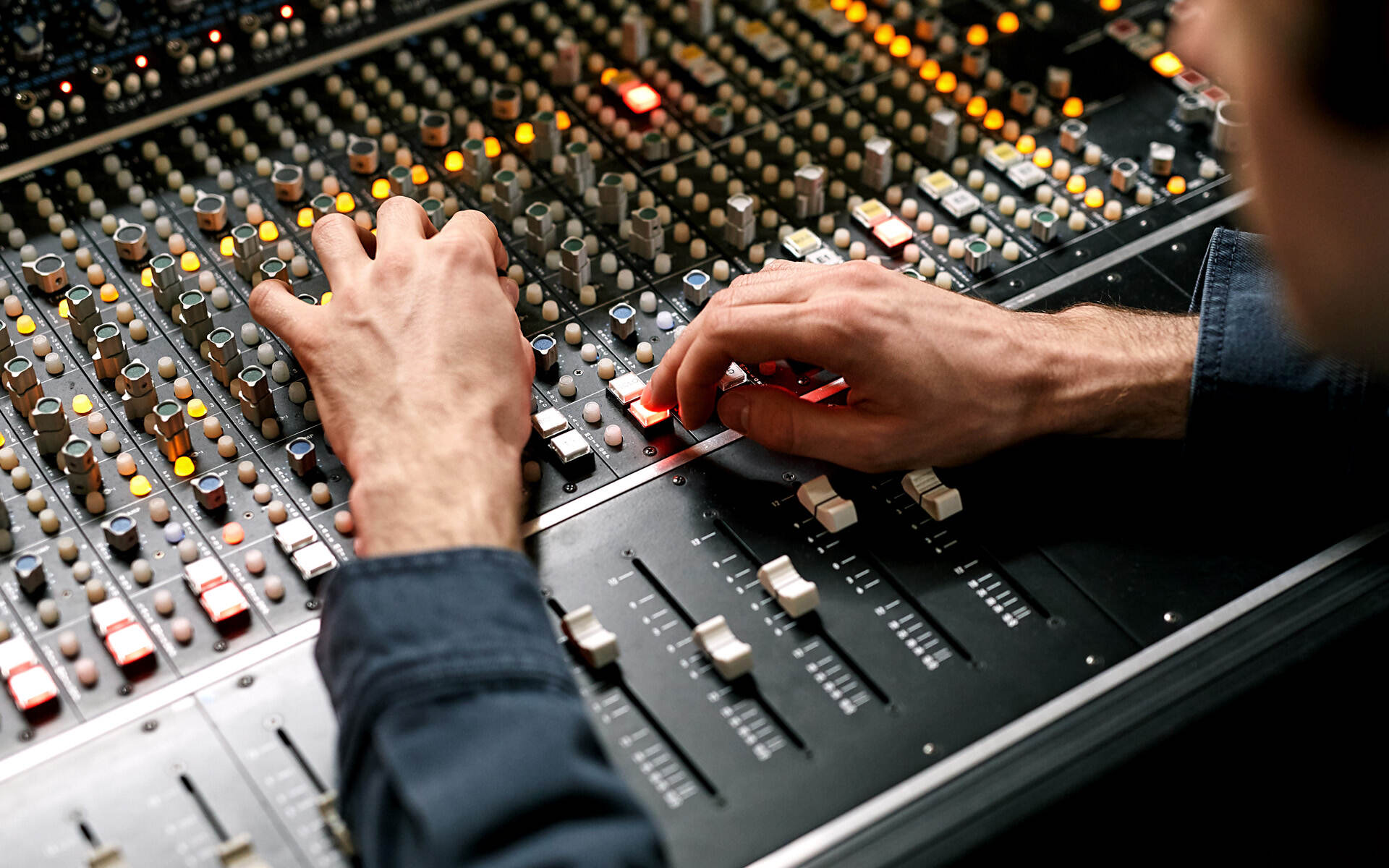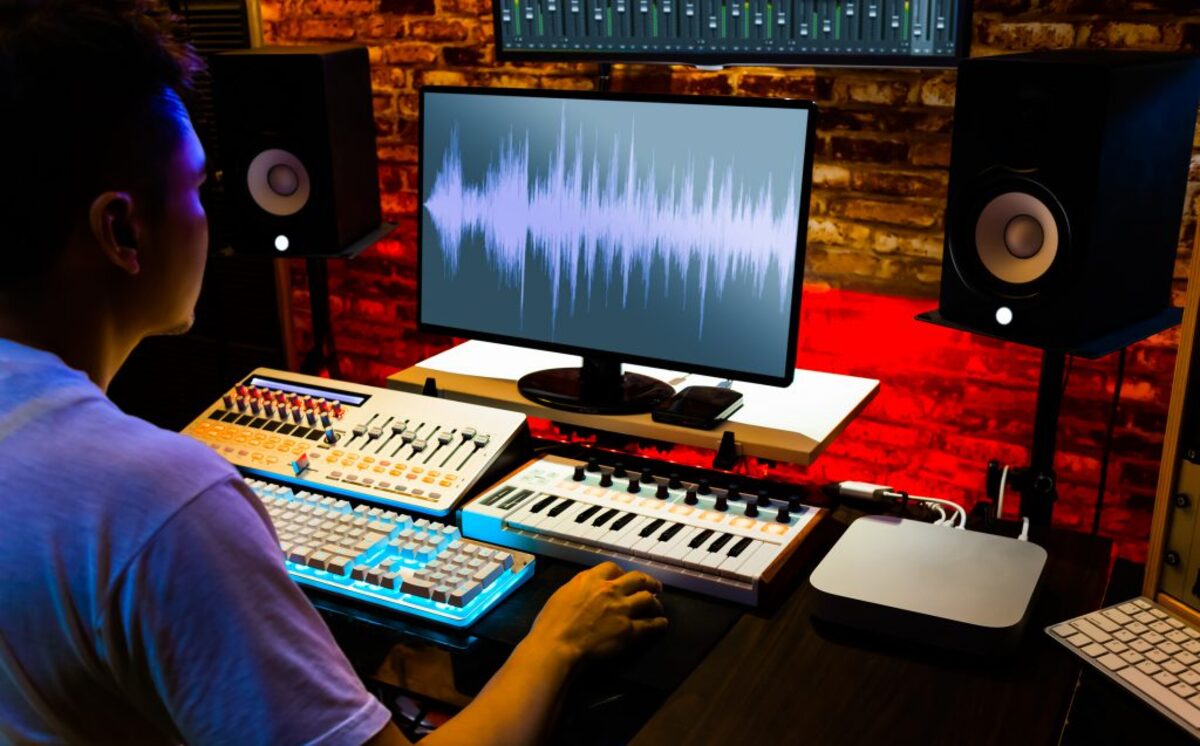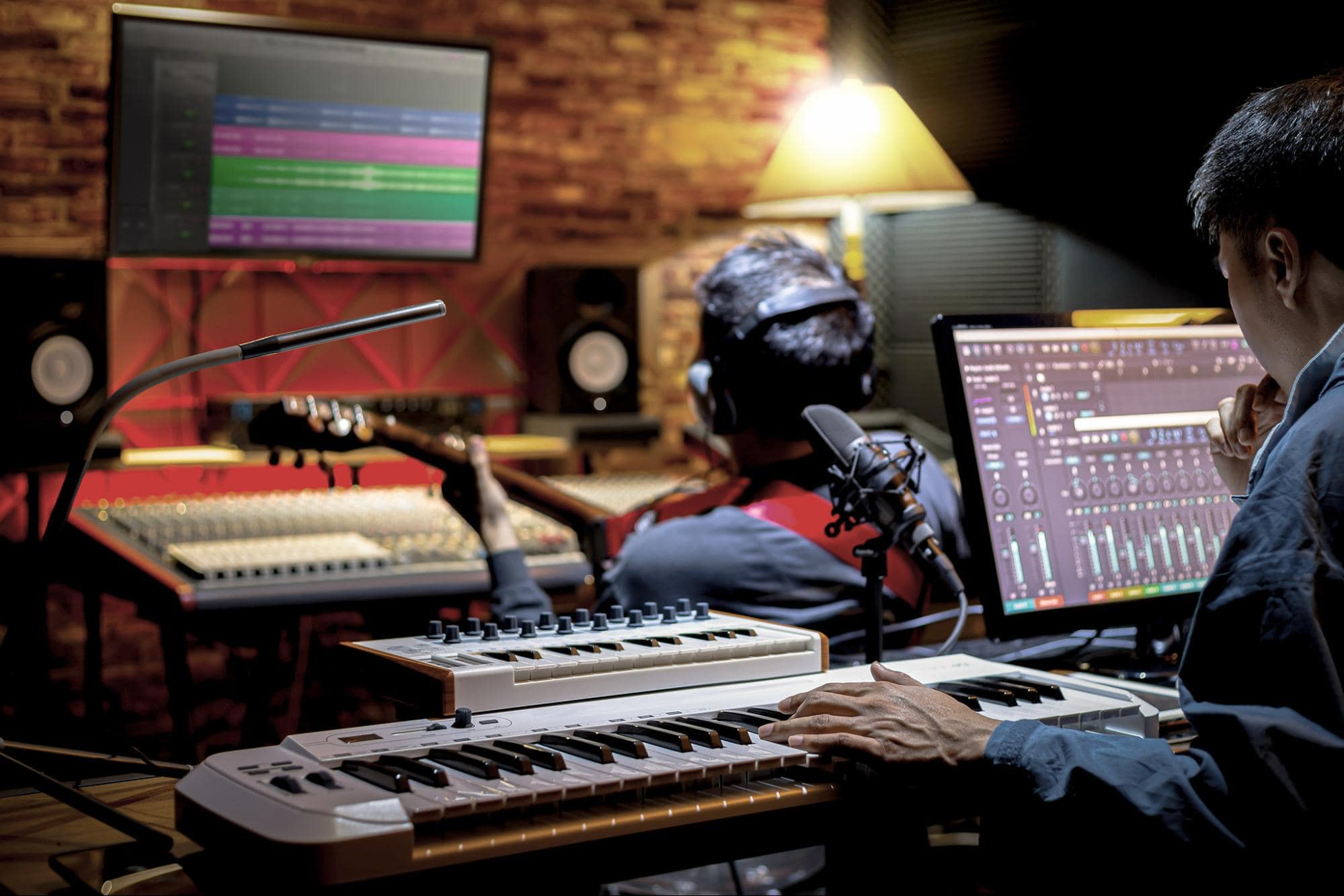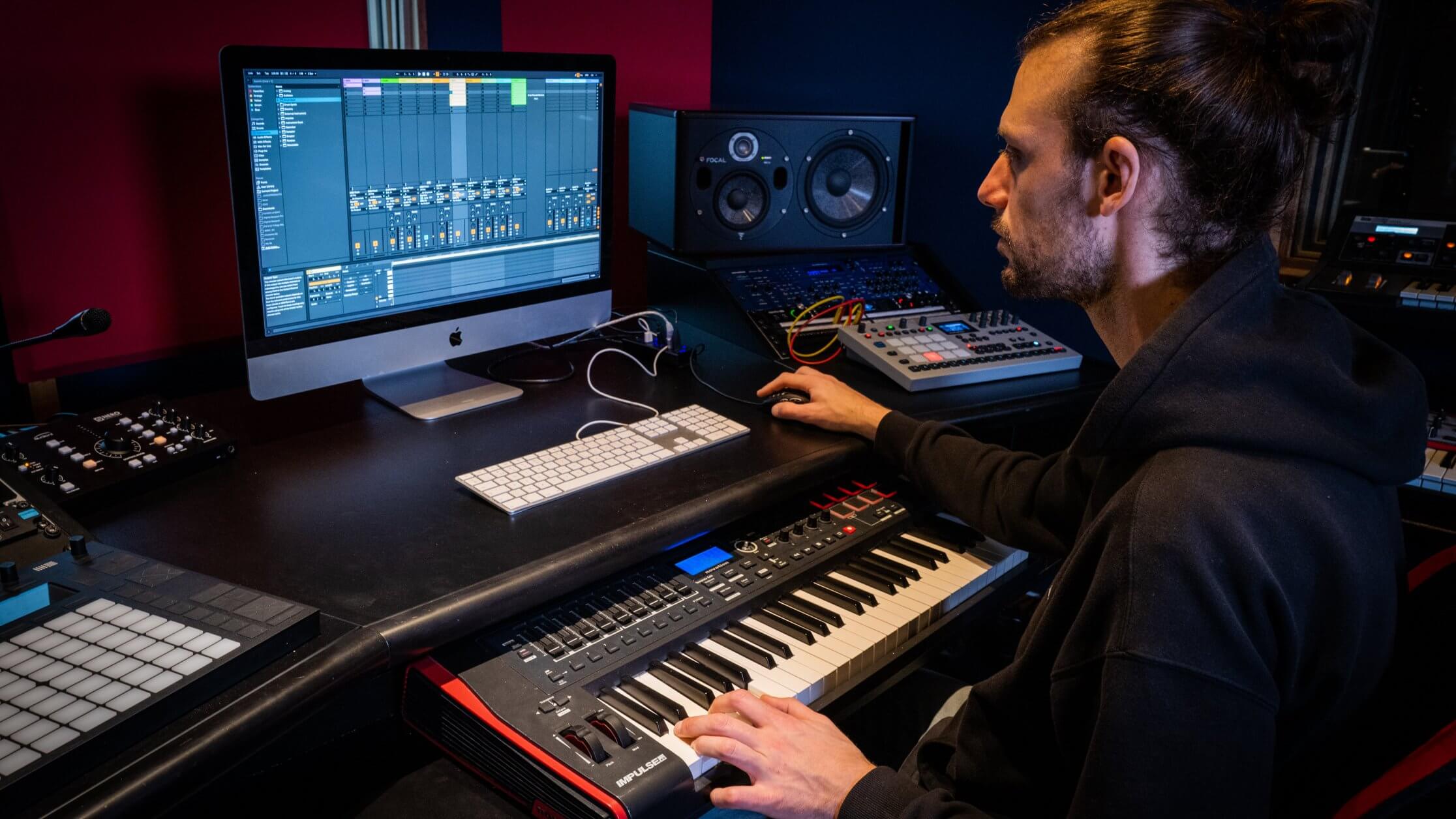Home>Production & Technology>Producer>What Training Is Needed To Become A Music Producer
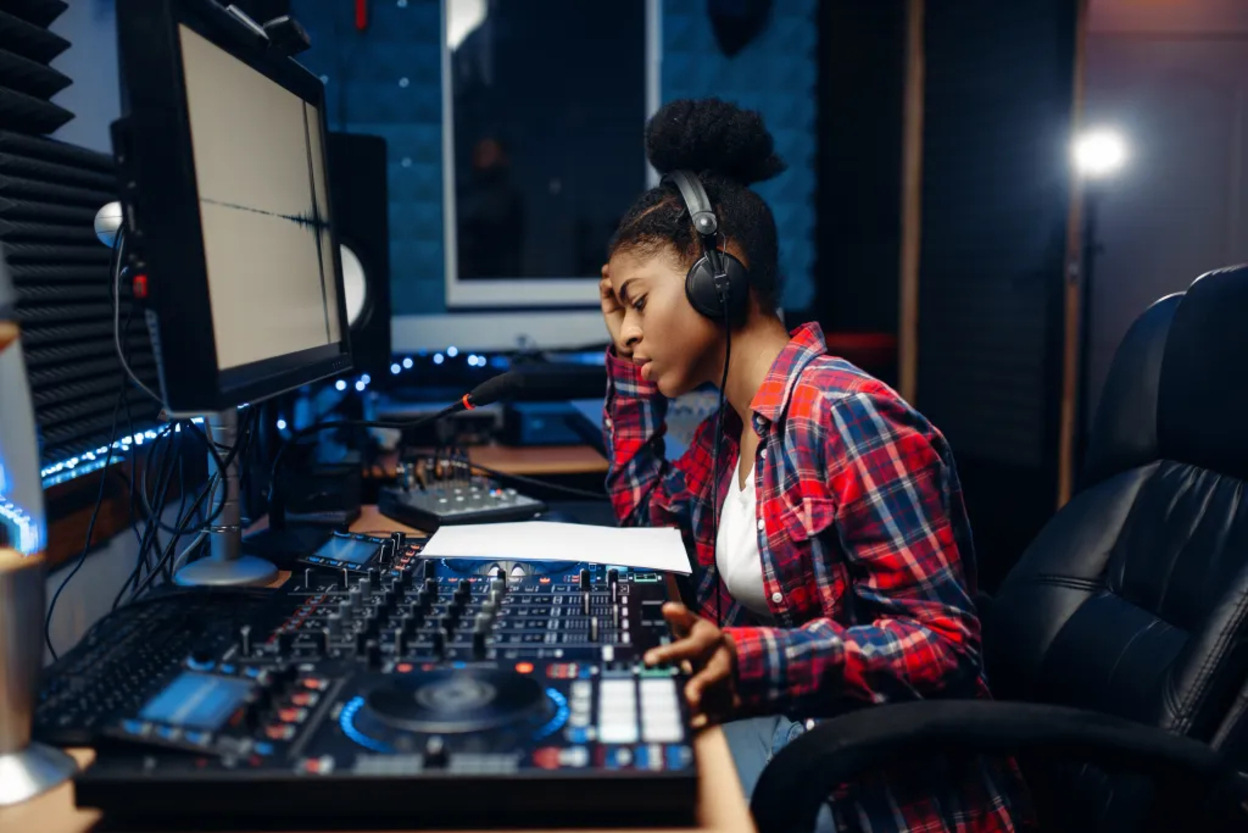

Producer
What Training Is Needed To Become A Music Producer
Published: March 6, 2024
Become a successful music producer with the right training. Learn the essential skills and knowledge needed to excel in the music industry. Start your journey today!
(Many of the links in this article redirect to a specific reviewed product. Your purchase of these products through affiliate links helps to generate commission for AudioLover.com, at no extra cost. Learn more)
Table of Contents
Introduction
Becoming a music producer is a dream for many music enthusiasts who are passionate about creating and shaping musical compositions. It's a role that requires a unique blend of technical skills, creativity, and industry knowledge. Music producers play a pivotal role in the music-making process, working closely with artists to bring their musical visions to life. To embark on this exciting career path, individuals need to acquire specific education and training to develop the necessary skills and expertise.
The journey to becoming a music producer is a dynamic and multifaceted one, encompassing various disciplines such as music theory, audio engineering, production techniques, and studio technology. Aspiring producers must also gain a deep understanding of the music industry, including its trends, business practices, and networking opportunities. By acquiring a comprehensive education and training, individuals can equip themselves with the tools and knowledge needed to thrive in the competitive and ever-evolving music production landscape.
In the following sections, we will delve into the specific training requirements and educational pathways that can pave the way for a successful career as a music producer. From music theory and composition to mastering the intricacies of studio equipment and industry networking, each aspect plays a crucial role in shaping a well-rounded and capable music producer. Let's explore the diverse educational avenues and training opportunities that aspiring producers can pursue to hone their craft and unleash their creative potential in the world of music production.
Education and Training Requirements
Becoming a proficient music producer requires a solid foundation in both technical skills and creative artistry. Aspiring music producers typically pursue formal education and training to acquire the knowledge and expertise essential for success in this field. While there isn't a strict set of educational requirements to become a music producer, obtaining relevant qualifications and honing specific skills can significantly bolster one's prospects in this competitive industry.
Many individuals choose to pursue a degree in music production, audio engineering, or a related field to gain a comprehensive understanding of the technical and artistic aspects of music production. These programs often cover a wide range of topics, including music theory, sound design, recording techniques, and digital audio workstations (DAWs). Additionally, coursework in music business and industry practices can provide valuable insights into the commercial and entrepreneurial aspects of music production.
In addition to formal education, hands-on training and practical experience are crucial for aspiring music producers. Internships at recording studios, music production companies, or with established producers offer invaluable real-world exposure and the opportunity to learn directly from industry professionals. These experiences provide aspiring producers with practical skills, industry insights, and networking opportunities that are instrumental in building a successful career.
Furthermore, specialized workshops, seminars, and online courses focused on music production and audio engineering can offer targeted training in specific areas of interest, such as mixing and mastering, electronic music production, or live sound engineering. These resources can supplement formal education and provide practical, up-to-date knowledge that aligns with the rapidly evolving landscape of music production technology and techniques.
Ultimately, the education and training requirements for aspiring music producers are diverse and multifaceted. While a formal education in music production or audio engineering can provide a strong foundation, practical experience, ongoing skill development, and a deep understanding of industry trends are equally vital. By pursuing a combination of formal education, hands-on training, and continuous learning opportunities, individuals can cultivate the expertise and creativity needed to thrive as music producers in today's dynamic and competitive music industry.
Music Theory and Composition
Music theory and composition form the bedrock of a music producer's skill set, providing the essential framework for understanding and creating compelling musical arrangements. Mastery of music theory equips producers with the knowledge of musical structure, harmony, rhythm, and melody, enabling them to craft compositions that resonate with audiences on a profound level.
A deep understanding of music theory empowers producers to analyze and deconstruct existing pieces of music, gaining insights into the underlying principles that govern harmonic progressions, chord structures, and melodic motifs. This analytical prowess allows producers to draw inspiration from diverse musical genres and styles, infusing their compositions with a rich tapestry of influences and innovation.
In addition to theoretical knowledge, proficiency in music composition is a cornerstone of a music producer's skill set. Composition encompasses the art of creating original musical pieces, from crafting melodies and harmonies to arranging instrumental and vocal elements in a cohesive and expressive manner. Through composition, producers can unleash their creative vision, shaping musical ideas into fully realized works that evoke emotion and captivate listeners.
Moreover, the study of composition enables producers to explore various musical forms and structures, from traditional songwriting formats to experimental and avant-garde approaches. This versatility empowers producers to adapt to diverse artistic visions and collaborate effectively with artists across different genres, ensuring that their productions are both technically proficient and artistically compelling.
To bolster their expertise in music theory and composition, aspiring music producers can pursue formal education in these disciplines, including coursework in music theory, harmony, counterpoint, and composition techniques. Additionally, engaging in practical exercises such as arranging existing compositions, creating original musical sketches, and experimenting with different musical scales and modes can deepen one's understanding of music theory and foster creative expression.
Ultimately, a strong foundation in music theory and composition equips music producers with the tools to articulate their artistic vision, communicate effectively with musicians, and craft productions that resonate with audiences on a profound emotional level. By honing their skills in these fundamental areas, producers can elevate their creative output and make a lasting impact in the dynamic and ever-evolving landscape of music production.
Audio Engineering and Production
Audio engineering and production are integral facets of a music producer's toolkit, encompassing the technical and creative processes involved in recording, mixing, and mastering music. The intersection of art and technology within audio engineering empowers producers to sculpt soundscapes, capture performances with precision, and imbue recordings with sonic depth and clarity.
In the realm of audio engineering, producers delve into the intricacies of sound capture and manipulation, employing a range of recording techniques, microphone placements, and signal processing methods to achieve optimal sonic results. Understanding the acoustics of recording spaces, the characteristics of different microphones, and the nuances of signal routing and processing enables producers to capture performances with fidelity and finesse, laying the groundwork for compelling musical productions.
Furthermore, proficiency in mixing and mastering is paramount for music producers, as it allows them to refine recorded tracks, balance sonic elements, and ensure that the final mix translates cohesively across various playback systems. The art of mixing involves shaping the tonal and spatial characteristics of individual tracks, blending them into a cohesive sonic tapestry, and creating a dynamic and immersive listening experience. Mastering, on the other hand, focuses on fine-tuning the overall sonic balance and preparing the final mix for distribution, ensuring that it meets professional standards and sounds consistent across different playback environments.
To excel in audio engineering and production, aspiring music producers can pursue specialized training in recording techniques, mixing principles, and mastering processes. Hands-on experience in professional recording studios, where they can work with diverse musical genres and recording scenarios, provides invaluable practical insights and hones their technical proficiency. Additionally, mastering digital audio workstations (DAWs) and industry-standard recording equipment equips producers with the tools to actualize their creative vision and elevate the sonic quality of their productions.
A deep understanding of audio engineering and production empowers music producers to navigate the technical intricacies of the recording process, collaborate effectively with recording engineers and musicians, and deliver polished, sonically captivating productions. By honing their expertise in sound capture, mixing, and mastering, producers can shape the auditory landscape of music, creating immersive sonic experiences that resonate with audiences and stand the test of time.
Studio Technology and Equipment
Studio technology and equipment constitute the essential tools that empower music producers to bring their creative visions to life with precision and artistry. From state-of-the-art recording gear to cutting-edge software and hardware, a deep understanding of studio technology and equipment is paramount for aspiring producers seeking to excel in the dynamic realm of music production.
One of the cornerstone elements of studio technology is the recording equipment, encompassing high-quality microphones, preamps, audio interfaces, and analog or digital recording consoles. These tools form the backbone of the recording process, enabling producers to capture performances with clarity, warmth, and fidelity. Understanding the nuances of different microphone types, their sonic characteristics, and optimal placement techniques equips producers to achieve pristine recordings that faithfully capture the nuances of musical performances.
In addition to recording equipment, proficiency in digital audio workstations (DAWs) is fundamental for modern music producers. DAWs serve as the central hub for recording, editing, mixing, and arranging musical compositions, offering a versatile and intuitive platform for producers to realize their creative ideas. Mastering the intricacies of DAWs, along with plugins, virtual instruments, and audio processing tools, empowers producers to sculpt and refine their productions with precision, leveraging a myriad of sonic possibilities to craft compelling and innovative musical works.
Furthermore, studio monitoring systems play a pivotal role in the production process, allowing producers to critically evaluate and refine their mixes with accuracy and detail. High-quality studio monitors, along with acoustically treated listening environments, enable producers to discern subtle sonic nuances, balance frequency spectrums, and ensure that their productions translate cohesively across different playback systems.
Moreover, an understanding of studio equipment extends to outboard gear, such as compressors, equalizers, reverbs, and effects processors, which enable producers to shape and enhance the sonic characteristics of recorded tracks. Delving into the sonic capabilities of various outboard gear, understanding signal flow, and mastering the art of signal processing empowers producers to imbue their productions with depth, dimension, and sonic richness.
By honing their knowledge of studio technology and equipment, aspiring music producers can leverage these tools to unleash their creative potential, elevate the sonic quality of their productions, and craft musical experiences that resonate with audiences on a profound level. The seamless integration of technical expertise, artistic intuition, and state-of-the-art studio technology forms the cornerstone of a successful music production journey, enabling producers to navigate the ever-evolving landscape of music creation with innovation and artistry.
Industry Knowledge and Networking
In the dynamic and competitive realm of music production, industry knowledge and effective networking play a pivotal role in shaping the trajectory of aspiring music producers. Beyond technical skills and creative prowess, a deep understanding of the music industry landscape, its trends, business dynamics, and networking opportunities is essential for forging a successful career path in music production.
Industry knowledge encompasses a multifaceted understanding of the music business, encompassing areas such as copyright and publishing, music licensing, royalty structures, and emerging industry trends. By immersing themselves in the nuances of music industry operations, aspiring producers gain insights into the commercial and legal aspects of music production, equipping them to navigate contracts, licensing agreements, and intellectual property considerations with confidence and acumen.
Moreover, staying abreast of industry trends, technological advancements, and evolving consumer preferences is crucial for producers seeking to create music that resonates with contemporary audiences. Understanding the impact of streaming platforms, digital distribution channels, and emerging marketing strategies empowers producers to adapt their creative approach and leverage innovative avenues for reaching and engaging with listeners.
In addition to industry knowledge, effective networking forms the cornerstone of building meaningful connections, fostering collaborations, and creating opportunities within the music production ecosystem. Engaging with fellow producers, recording engineers, artists, and industry professionals not only cultivates a supportive community but also opens doors to potential collaborations, mentorship opportunities, and industry insights.
Attending industry events, music conferences, and workshops provides aspiring producers with platforms to network, exchange ideas, and gain exposure to diverse perspectives within the music industry. Building and nurturing professional relationships with artists, labels, and music industry stakeholders can lead to collaborative projects, production opportunities, and exposure to new creative avenues, thereby enriching the producer's portfolio and expanding their professional network.
Furthermore, leveraging digital platforms and social media to showcase one's work, engage with industry peers, and connect with potential collaborators amplifies the reach and impact of a producer's creative endeavors. Establishing a strong online presence through platforms such as SoundCloud, LinkedIn, and industry-specific forums facilitates visibility, fosters connections, and positions producers as active contributors to the vibrant tapestry of the music industry.
By cultivating a nuanced understanding of the music industry and actively engaging in strategic networking efforts, aspiring music producers can position themselves for success, leverage opportunities for growth and collaboration, and carve a distinctive niche within the dynamic and ever-evolving landscape of music production. The fusion of industry knowledge and proactive networking not only enriches the professional journey of music producers but also contributes to the vibrancy and innovation of the broader music ecosystem.
Conclusion
In conclusion, the journey to becoming a music producer is a multifaceted and dynamic pursuit that encompasses a diverse array of skills, knowledge, and experiences. From mastering the intricacies of music theory and composition to delving into the realms of audio engineering, production techniques, and studio technology, aspiring producers embark on a transformative learning journey that equips them with the tools to shape and elevate the sonic landscape of music.
The convergence of technical expertise, creative artistry, and industry acumen forms the cornerstone of a successful music production career. By pursuing formal education, hands-on training, and continuous skill development, aspiring producers can cultivate a versatile skill set that empowers them to navigate the complexities of music creation with innovation and precision.
Furthermore, the cultivation of industry knowledge and effective networking strategies positions producers to thrive within the competitive music industry landscape. Understanding the nuances of music business operations, staying attuned to industry trends, and actively engaging in networking opportunities enables producers to forge meaningful connections, collaborate with diverse talents, and leverage emerging avenues for creative expression and commercial success.
Ultimately, the role of a music producer extends far beyond technical proficiency; it encompasses a profound passion for music, a relentless pursuit of sonic excellence, and a deep commitment to artistic innovation. Aspiring producers who embrace the holistic nature of music production, blending technical mastery with creative intuition and industry savvy, are poised to make a lasting impact in the vibrant and ever-evolving world of music.
In essence, the journey to becoming a music producer is a transformative odyssey that unfolds through a continuous pursuit of knowledge, creativity, and industry immersion. By embracing the diverse facets of music production and honing a multifaceted skill set, aspiring producers can carve their unique imprint on the musical landscape, enriching the sonic tapestry with their creative vision and technical prowess.

